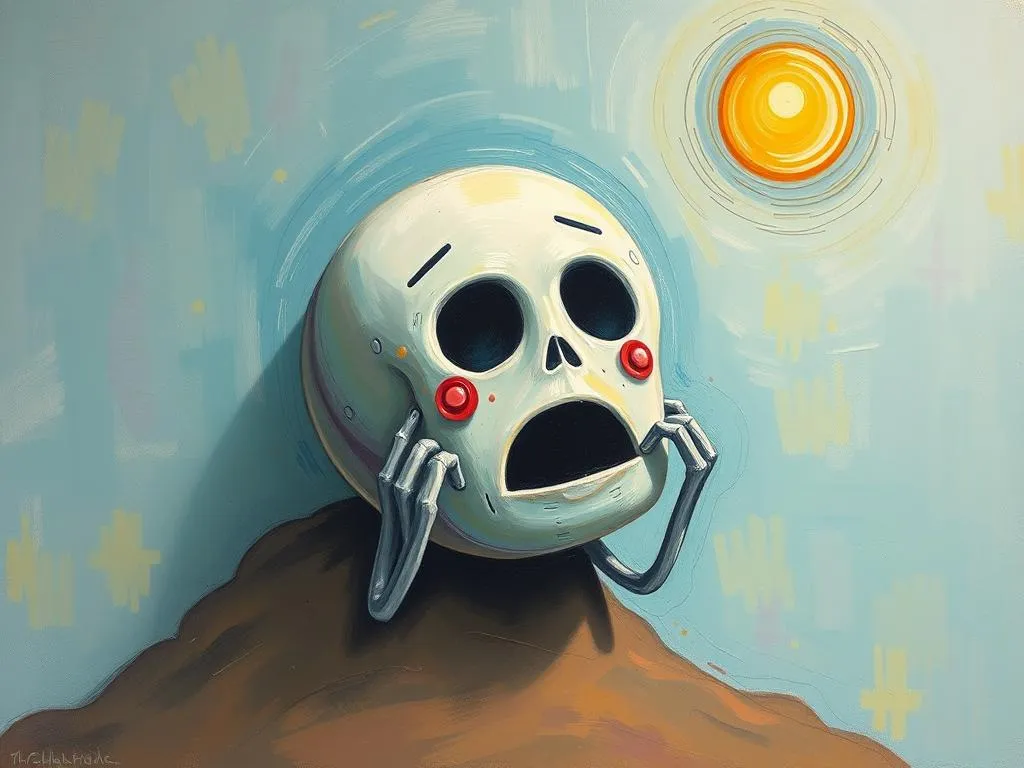
Have you ever awakened from a dream where you found yourself pretending to be dead? It’s a curious scenario that can leave you feeling perplexed, haunted, or even relieved. Such dreams often tug at the strings of our subconscious, revealing hidden truths about our emotions, fears, and desires. They can prompt us to explore the deeper layers of our psyche, encouraging personal growth and self-awareness. If you’ve experienced this dream, rest assured you’re not alone, and there’s much to uncover.
As you delve into the world of dreams, it’s essential to remember that each symbol carries unique meanings that can vary across cultures and personal experiences. So, grab a cozy blanket, and let’s embark on a journey of exploration and understanding together.
The Illusion of Death: Unpacking the Symbolism
Diving into the symbolism of pretending to be dead in dreams uncovers layers of meaning that resonate deeply within the human experience. This dream can symbolize transformation and rebirth, echoing themes found in various cultural narratives. For instance, many indigenous cultures view death not as an end but as a transition to a new phase of existence. Thus, dreaming of pretending to be dead could signify a desire to shed old identities or life patterns, making way for new beginnings.
On a psychological level, this dream often reflects the fear of vulnerability. Pretending to be dead can indicate a longing to hide from the world, an escape from responsibilities, or a desire to avoid confronting something painful. It might also suggest a protective mechanism—an effort to shield oneself from emotional pain or conflict. In this way, it acts as a metaphor for self-preservation, where the dreamer feels they must go into hiding to cope with life’s challenges.
Furthermore, the act of pretending itself is significant. It may reveal feelings of inadequacy or impostor syndrome, where one feels they must mask their true selves to fit in or avoid judgment. This illusion can create a powerful internal conflict, leaving the dreamer feeling detached from their authentic self. As you reflect on this symbolism, consider asking yourself: What aspects of your life feel overwhelming or burdensome? What changes are you yearning for?
Life Behind the Mask: Scenarios of the Dream
Understanding the nuances of this dream can be enhanced through various scenarios. Here are a few common narratives that may resonate with your experience:
1. The Disappearing Act
In this scenario, you find yourself lying still in a crowded room, unnoticed as people pass by. You feel a strange sense of calm, relieved that no one can see your true self. This dream may reflect feelings of isolation and a desire to escape social pressures. Perhaps you’re going through a phase where you feel misunderstood, and your subconscious is urging you to take a break from the chaos.
2. The Family Gathering
Imagine dreaming of a family gathering where you decide to play dead during a lively dinner. Initially, it seems like a joke, but as time passes, you start to feel the weight of your decision. This scenario may highlight family dynamics or unresolved issues. It could symbolize your desire to be heard or recognized within your family, urging you to confront underlying tensions instead of hiding from them.
3. The Secretive Stranger
In this dream, you encounter a mysterious figure who asks you to pretend to be dead in a dangerous situation. While initially disoriented, you embrace the role. This scenario may reflect your response to external pressures—perhaps a work-related stressor or a toxic relationship. It suggests your subconscious is telling you to adapt and navigate challenges more strategically instead of confronting them head-on.
4. The New Beginning
You find yourself in a lush forest, pretending to be dead among the foliage. As you lie still, you notice new life blooming around you. This dream may symbolize a period of growth following a significant change. It suggests that while you may feel stagnant or stuck, there’s potential for renewal if you allow yourself to embrace the changes happening in your life.
5. The Unraveling Secrets
In this dream, you’re at an event where someone reveals a secret about you that you wished to keep hidden. To avoid embarrassment, you decide to play dead. This situation highlights your fear of exposure and the need to maintain control over your narrative. It may indicate a desire to confront hidden aspects of your life, urging you to take a brave step toward authenticity.
Embracing Change: The Path to Personal Growth
Now that we’ve examined the symbolism and scenarios, let’s consider how you can transform these insights into personal growth. Dreams are not just fleeting images; they’re opportunities for reflection and change. Here are a few practical steps to help you navigate your feelings and harness the lessons from your dreams:
Reflect and Journal
Take time to reflect on your dreams. Write them down, focusing on your emotions and thoughts during the experience. Journaling can help you process feelings and identify patterns in your life. What fears or desires are surfacing? What do you wish to change?
Embrace Vulnerability
Instead of hiding or pretending, allow yourself to be vulnerable. Share your feelings with trusted friends or family members. Acknowledging your emotions can lead to deeper connections and support, fostering a sense of community that helps you navigate challenges.
Identify Areas of Change
Use your dream insights to pinpoint areas in your life where you feel stagnant. What aspects of your identity or situation do you want to shed? Embrace the idea of transformation—set small, achievable goals to help you move forward.
Seek Guidance
If you’re feeling overwhelmed, consider seeking professional guidance. A therapist or counselor can provide support and help you work through your feelings, enabling you to confront fears and embrace change more effectively.
Practice Self-Compassion
Be kind to yourself throughout this journey. Embracing change and confronting deep-seated fears can be challenging. Treat yourself with compassion and patience, recognizing that growth takes time and effort.
By integrating these practices into your life, you can transform the unsettling feelings associated with dreaming of pretending to be dead into a powerful catalyst for self-discovery and change.
In the grand tapestry of life, dreams serve as a mirror reflecting our innermost thoughts and feelings. The act of pretending to be dead is not merely a whimsical notion; it’s a profound invitation to explore the hidden corners of our psyche. As you navigate your dreams and awakenings, remember that every ending holds the promise of a new beginning. Embrace the journey, and let the insights you gain propel you toward a more authentic and fulfilling life.
The next time you find yourself in the grip of this curious dream, take a moment to reflect on what it might be teaching you. Trust that your subconscious is guiding you toward growth, transformation, and the courage to face your true self.







